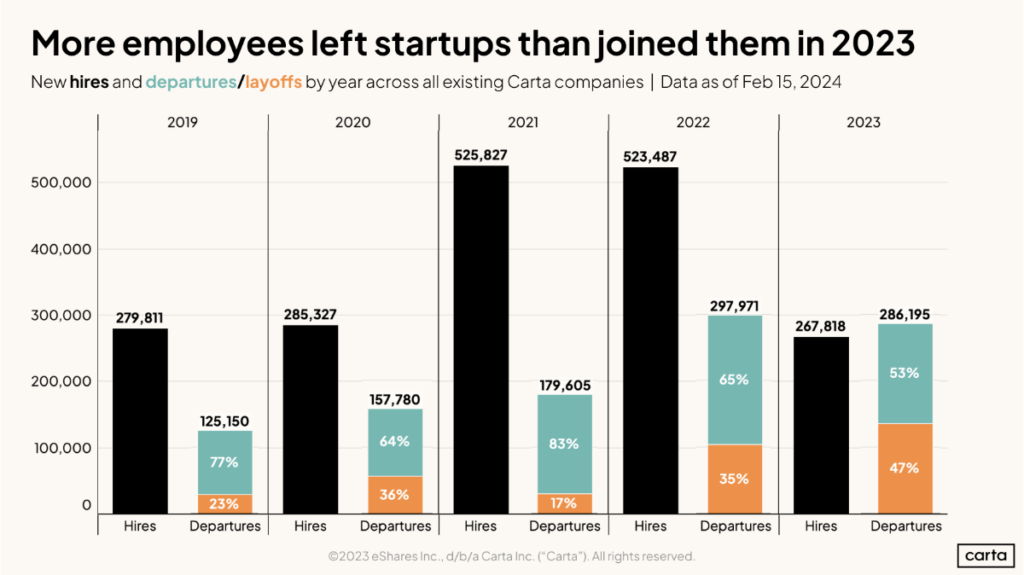In 2023, the startup ecosystem experienced a significant shift in hiring practices, marked by increased scrutiny from founders on new hires. This change was part of a broader trend that saw the tech industry grappling with a record number of layoffs, leading to an overall contraction in the asset class over the previous 12 months. This development represents a stark departure from the explosive growth during the boom period of 2021 and 2022, when Carta companies alone added more than half a million new employees.
The past year's hiring statistics present a clear picture of the changing dynamics. Carta startups saw only 268,000 new hires, a substantial decrease from the previous years, while 286,000 employees departed, whether by choice or through reductions in force (RIFs). It's important to note that these figures primarily track employees receiving equity, which increasingly represents a majority within tech startups.

What Led to the Shift?
Two primary factors contributed to this downturn in startup hiring:
- Cost-Cutting Measures: Founders heeded investor calls to reduce expenses, with payroll being the most significant cost center for most companies. This led to a more cautious approach to expanding headcount.
- Employee Caution: Workers, sensing the uncertain market conditions, opted to stay in their current positions rather than seeking new opportunities. This shift reduced the demand for backfill hires, further slowing the hiring pace.
Looking Ahead to 2024
The start of 2024 has not signaled a reversal of this trend, with layoffs showing an uptick in January. This raises questions about the future of startup hiring and whether the peak levels of 2022 will represent a high-water mark for the foreseeable future. As startups and their founders navigate these challenging conditions, the emphasis on strategic hiring and cost management is likely to persist, potentially reshaping the landscape of employment in the tech sector.

